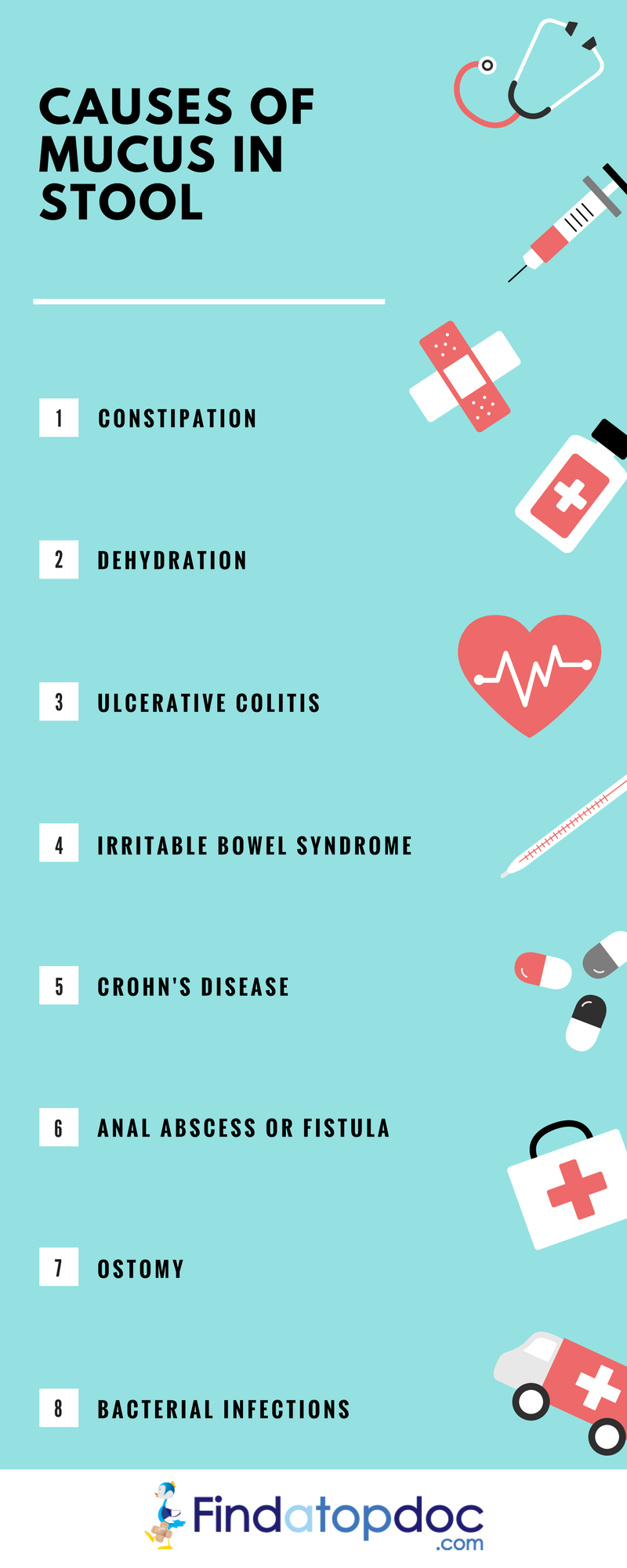
Source
Causes
The mucous membrane of the large intestine helps stool to pass. A "normal" bowel movement will not produce much mucus. Yellow or clear mucus is present in such little amounts that the naked eye would not notice it. When stool has visible mucus, it can be a sign of bacterial infections, anal fissures, a bowel obstruction, or Crohn's disease. This type of warning sign is the body's way of saying stop, look, and listen.
Other signs to look for:
- Increased amounts of mucus
- Blood or pus in the stool
- Stomach pain, cramping, or bloating
- Sudden changes in stool frequency, consistency, or color
There’s no one-size-fits-all treatment for abnormal mucus in the stool. To treat the excess mucus, your doctor will need to diagnose and treat any underlying problems, which may be related to inflammation in your colon. If additional information is needed, your doctor may request more tests. These may include:
- blood test
- stool culture
- urinalysis
- colonoscopy
- endoscopy